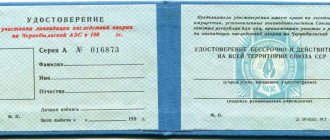Privatization is a paid procedure that involves the transfer of real estate from residential or non-residential stock into private ownership to one several citizens or legal entity.
To implement it, it is necessary to fulfill the conditions of the procedure in the manner prescribed by law. Conditions may vary depending on the type of premises.
Privatization of non-residential premises is a primary type transaction, which is carried out only on a paid basis. The procedure is regulated and carried out on the basis of the Civil Code of the Russian Federation, as well as Federal Laws No. 159 and 178. Additionally, they are also guided by Presidential Decree No. 2284 of December 21, 1993, which includes all provided programs for cities.
What is the procedure for privatization of non-residential premises
The Constitution of the Russian Federation provides for several types of property - state, municipal and private. In the 90s of the last century, legal mechanisms were developed to allow the transfer of property into private ownership. Thanks to this, it is possible to carry out the privatization of state and municipal property.
It should be taken into account that there is residential and non-residential stock. The privatization procedure in both cases has significant differences.
Most citizens who are far from public administration are familiar with only one side of the procedure - when an apartment is transferred into private ownership free of charge. In relation to non-residential facilities, the legislation provides for payment.
Difference between residential and non-residential stock:
- The category includes premises in which citizens legally reside. Among them are private apartment buildings, as well as dormitories. This category will also include buildings that are used for temporary residence - hotels.
- Non-residential stock includes buildings and structures that are used for a specific purpose (except for residence). These include warehouses, sports, offices, hospitals and other facilities.
The current legal framework allows individuals and legal entities to obtain municipal/state property from non-residential stock.
Only property that is not exclusively at the disposal of the state (objects and lands of strategic importance) can be obtained for private disposal.
The object that will be transferred to citizens/institutions may be:
- company;
- educational institutions;
- office;
- hospitals;
- cultural site;
- retail premises;
- Earth;
- natural object and others.
According to established regulations, the transfer of property from non-residential stock to private ownership is carried out for money. Often, bidding is held (an auction is organized), as a result of which the future owner is determined.
It is also possible to buy out the premises as a tenant, where the basic basis will be a lease agreement. Their organization requires compliance with the regulations prescribed by law.
There are several conditions that may change the procedure for privatization.
To fulfill everything according to the law, you need to take into account the following nuances:
- to whom the property is transferred - individuals or legal entities;
- location of the premises - dormitory, apartment building or residential building.
Guided by such data, you can proceed to the privatization procedure. To do this, you need to perform actions according to the established order.
For individuals
Individuals are allowed to register ownership of non-residential premises. Citizens who have a rental agreement for municipally owned housing can apply with the intention of privatizing the rented apartment.
At the same time, it is possible to privatize part of the non-residential premises, among which there will be a share of the attic or a separate basement room.
Note! Only a separate share of such municipal property can be privatized. This is determined by the fact that the object is common property, which is also used by other tenants.
If there is a desire to take possession of the entire property from common use, it is required to obtain written consent from the shared tenants.
Citizens are also allowed to enter into a purchase and sale agreement for such premises between individuals. persons. This allows tenants who do not wish to formalize ownership rights to receive a refund of their share in cash.
Apartment and residential buildings
All owners of apartments in multi-apartment and residential buildings have the right to a part of the common property. This includes all premises that are not used as residential, but have a specific purpose (attics, basements, storage rooms, etc.).
To formalize ownership, it is necessary to obtain the consent of all participants in shared ownership in writing. Privatization of non-residential premises in a residential building is identical.
The legislation also provides for an extensive package of documents, which the applicant undertakes to provide during the registration process.
The privatization of land that belongs to the property of apartment buildings is allowed. This is quite popular among the population. Citizens can take possession of land that they have been using for some time.
In dorm
Entrepreneurs who have a rental agreement for premises can save money. When a dormitory building is used for commercial purposes, it is converted to non-residential use.
These are:
- the shops;
- service salons;
- offices;
- other facilities for conducting commercial activities.
The optimal solution would be to register non-residential premises. The norms of current law are aimed at businessmen who are engaged in entrepreneurial activities. The provision of services and trade act as a driver for the registration of property rights.
Registration of ownership

The right of ownership and rights of the owner of non-residential premises do not arise automatically.
After its appearance or acquisition, it is necessary to register the emergence or change of ownership.
This also applies to the rights of owners of non-residential premises in an apartment building.
Separate registration has been required since 1998, after Federal Law No. 122-FZ of June 21, 1997 came into force. If the building (or part of it) was received earlier, it is carried out at will.
Confirmation of ownership is required when carrying out various actions with real estate: sales, wills, donations.
But in some cases, you will have to prove your right to own the premises in court. Let's consider both options.
If you have a document confirming ownership, you must contact Rosreestr for registration.
It can be done:
- in its territorial office;
- through the MFC;
- through the Internet;
- by mail;
- through a trusted person.
If the premises are converted from another, you will need to present permitting documents.
If the owner of a previously existing premises has changed, one of the following documents can confirm this:
- contract of sale;
- gift agreement;
- will.
Procedure
For those who need to know how to register ownership of non-residential premises, you should familiarize yourself with the prescribed procedure. The procedure includes several steps and requires step-by-step implementation.
Regardless of who acts as the subject when registering property (legal entity or individual), the initial stages are the same for all participants in the process.
The procedure for privatization of non-residential premises requires the accuracy and reliability of the data provided.
You need to do the following:
- Contact the relevant authority with a statement of intention to transfer the property to your disposal as an owner.
- The applicant collects the relevant package of documents and submits it to authorized officials along with the application.
- Await decision review. This will take a month.
- The answer is provided by the commission that deals with the procedure for the alienation of municipal property.
- The next stage requires payment of a state fee, which is established.
- The next step will be to contact the property registration authority with the appropriate application and the resulting resolution.
- Receive an extract from the Unified State Register.
A certificate of registration of ownership of non-residential premises is currently not issued. To register, you need to contact the Unified State Register of Rights (hereinafter referred to as the Unified State Register of Rights).
This institution contains up-to-date information on the condition of all types of real estate, regardless of who is the copyright holder. You will need to wait about a month to receive an extract from the Unified State Register.
At the last stage, while the new owner is waiting for a response from the relevant institution, the administration will issue technical documents for the acquired property.
These include:
- cadastral passport;
- plan;
- technical certificate;
- privatization agreement and others.
In practice, the procedure is very similar to registration of ownership of residential premises. However, there are differences that should not be overlooked to avoid mistakes.
Statement
Particular attention should be paid to completing the application.
The structure of the document is very important and should contain the following information:
- information about the body or authorized person who accepts the application for consideration;
- applicant's passport details;
- grounds for re-registration;
- list of attached documents.
Completion requires standard documentation, which includes the date of execution and a personal signature. To avoid mistakes, it is recommended to first download and familiarize yourself with a sample application.
Where to go
To register non-residential premises as property, you need to contact the district administration. Here a commission is formed that will make a decision on the alienation of municipal property.
The applicant will receive a response in writing, which will indicate the decision. This will take two months.
If the property is controversial and affects the interests of several citizens, the one who has the lease agreement will have the advantage. The timing also matters. When it exceeds three years for one of the tenants, privatization will be determined in his favor.
What documents are required
The law provides a list of documents that are required to formalize the privatization of non-residential real estate.
It includes the following:
- a statement of intent to privatize drawn up by the tenant;
- passport details of the citizen (copy of passport);
- certificate from the cadastre;
- an agreement evidencing the lease of real estate.
A receipt confirming payment of the state duty must be presented. In some cases, the list may be expanded.
Submission of documents is carried out personally by the applicant. There is an option when documents are submitted by means of a power of attorney certified by a notary. The first option would be preferable.
Valuation of non-residential premises
Through an appraisal, the value of the property that is the subject of interest is established. Payment options are discussed in advance.
Provides:
- one-time – full payment of the specified cost;
- installment plan for three years - paid in monthly installments, it requires an installment agreement.
Therefore, the applicant undertakes to provide a receipt to confirm payment. After submitting this document, you will need to wait 60 days. The applicant will receive a resolution notifying that the requested property has been transferred into ownership.
To protect yourself from violations during the contract execution process, it is recommended to use the help of a specialist.
Conclusion of an agreement (sample)
The agreement is drawn up in writing by the interested parties, and they sign it. If the form is not followed during the registration process, the transaction is considered invalid.
Important! The document must contain information about the subject of the contract. The data must clearly identify the property to be transferred.
Indicators that serve as a basis for identifying the premises:
- object details;
- Name;
- cadastral number;
- footprint.
The agreement also includes grounds that confirm the rights of the owner of real estate. Subject to their limitations, documents such as pledge, arrest, and rights of third parties serve as evidence. You can visit the website to format the document correctly.
Certificate

Within a week after the application, the property owner receives a certificate of ownership of the non-residential premises.
When using the services of the MFC or post office, the registration period for non-residential premises can be extended, usually up to two weeks.
If there are several owners, each of them receives their own copy..
According to the 22nd subparagraph of Article 333.33, the registration fee is 2 thousand for individuals and 22 thousand for legal entities. If there are several owners, this amount is divided equally between them. If among them there are both organizations and citizens, each pays the appropriate share of “their” state duty.
This is important to know: Claim for recognition of ownership of an apartment due to acquisitive prescription
Privatization period
Each stage of the procedure takes the allotted time, which is required to fulfill the stipulated conditions. Government agencies set certain time limits. The total duration is 3 calendar months.
| Deadlines required by government agencies | ||
| № | Structure name | Term |
| 1. | District administration | 30 days |
| 2. | Municipality | 60 days |
The Unified State Register of Rights is the last institution that issues information on the condition of property. This is the last point of the privatization procedure. It takes less than a month to receive the document.
Grounds for refusal of privatization
The administrative body that is involved in the review has the right to refuse the transaction. A person who does not meet the requirements cannot register ownership.
The reasons for this answer are:
- there are no funds to repay the established amount;
- refusal to pay the established cost;
- the applicant about the intention of privatization reduces the price for the object;
- the document on the desire to privatize the property was drawn up incorrectly;
- the required documents are missing or an incomplete package is provided.
The last two points provide the opportunity to re-apply. To do this, you will have to repeat the order from the starting position.
On recognition of property rights
If there are any disputes regarding the premises or there is no title document, registering ownership of it will be much more difficult. You will have to seek recognition of this right in court.
The reasons for difficulties in recognizing ownership of non-residential premises may be different, for example:
- The developer does not formalize the ownership rights of the shareholder or shareholders.
- When purchasing non-residential premises (for example, a garage), payments are actually made by a person who is not included in the list of members of the cooperative.
- The necessary documents were not completed or were lost.
- The premises were transferred to someone as a result of a transaction that violates the law and therefore can be challenged.
- And so on.

In these cases, it is necessary to draw up a statement of claim and submit it to the civil court at the location of the premises.
The subject of the claim will be the right of ownership of real estate, the basis - those circumstances that can confirm the legality of this right.
Depending on the circumstances, they may serve:
- equity participation agreement;
- acceptance certificate for the contract;
- additional agreement to the contract;
- documents that can confirm that financial obligations have been fulfilled (for example, receipts);
- various certificates;
- and others.
As a rule, the proceedings last about one and a half to two months . If the decision is made in favor of the plaintiff, he can begin registering his rights to the property. The court's decision will serve as confirmation.
State duty amount
Registration of privatization of real estate that is in the real estate fund, as indicated above, is carried out on a paid basis. The applicant must pay a state fee.
Dimensions are:
- individuals – 2.5 thousand rubles;
- legal entities – 22 thousand.
In addition, there is a payment to local governments, which is made according to the purchase and sale agreement.
If participation in an auction is expected, the cost of the object is agreed upon in advance. Each participant undertakes to contribute 10% of the established price of the object for participation. The winning participant contributes the remaining amount. Those who remain losers receive the deposited amount as a deposit for participation.








